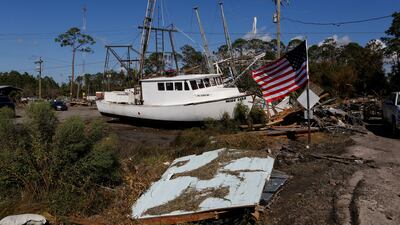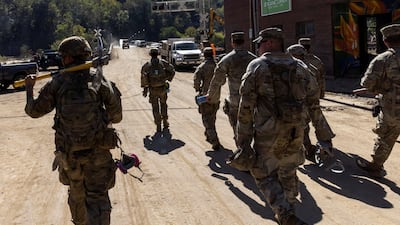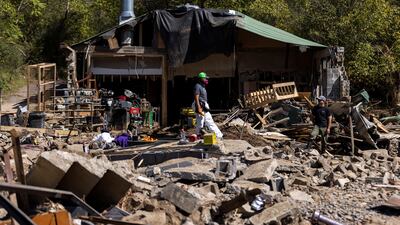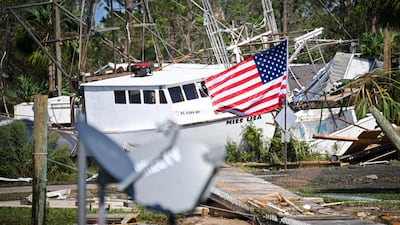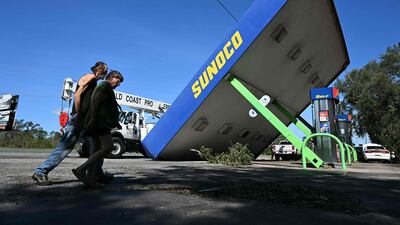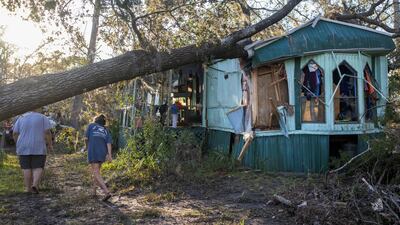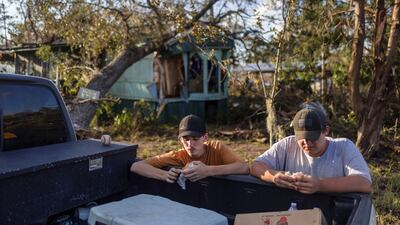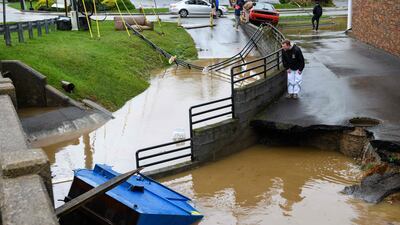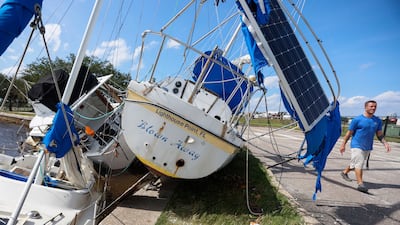Emergency responders in North Carolina were racing on Monday to try to reach people who remain unaccounted for three days after Hurricane Helene tore through the south-eastern US, killing more than 130 people.
CNN reported on Monday that 132 were killed in the storm across six states, and about 2.1 million homes and businesses were without power while mobile phone service remained unavailable in large areas from Ohio through the Carolinas and into Florida.
“The lack of communication is concerning,” North Carolina Governor Roy Cooper told CNN on Monday. “We know that there are people missing, and we know that there's going to be significant fatalities at the end of this and our prayers and our hearts go out to these families.”
Mr Cooper, who said he had not heard from his son and daughter in 72 hours, added that local officials and rescue workers were performing door-to-door welfare checks in many communities.
The National Guard is fully activated and emergency workers from 19 states are there to help, along with Federal Emergency Management Agency personnel, according to Reuters. Mr Cooper said the rugged terrain in the mountains of western North Carolina makes it almost impossible to traverse, with landslides and flooding.
“So we're depending a lot on air power, helicopters with hoist capacity to get supplies in,” he said.
Helene hit Florida's Gulf Coast on Thursday night, triggering days of driving rain and destroying homes that had stood for decades. As it moved north, it washed out roads, decimated neighbourhoods and left many communities without water and basic necessities.
Officials in western North Carolina have been working non-stop to get more water, food and other supplies to flood-stricken areas, the Associated Press reported. Shelters in the area are housing more than 1,000 people.
Supplies were being lifted by air to the region around the isolated city of Asheville, and Buncombe county manager Avril Pinder pledged that she would have food and water to the city by Monday.
“We hear you. We need food and we need water,” Ms Pinder said on a Sunday call with reporters. “My staff has been making every request possible to the state for support and we’ve been working with every single organisation that has reached out. What I promise you is that we are very close.”
Asheville's water system was severely damaged. Residents walked with buckets to a creek to get water to flush toilets, carefully watching their steps where a wall of water three days before stripped away all of the trees and ground, leaving only mud.
The storm upended life throughout the south-east. Officials warned that rebuilding from the widespread loss of homes and property would be lengthy and difficult.
Damage estimates ranged from $15 billion to more than $100 billion, insurers and forecasters said at the weekend, as water systems, communications and critical transport routes were damaged or destroyed.
President Joe Biden plans to visit affected areas this week, once he can do so without disrupting emergency services, the White House said. Both Vice President Kamala Harris and Donald Trump have altered their travel plans to visit affected areas.

